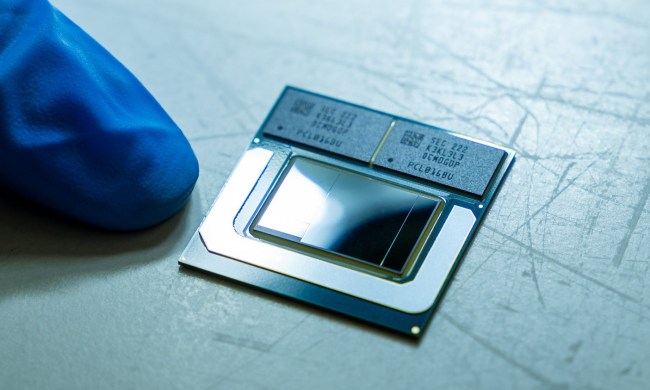The first hint of pricing for Intel’s upcoming 10th generation of Comet Lake CPUs suggests that the new generation could be more expensive than the last across the board. Listings for a number of entry-level and midrange 10th-gen CPUs have appeared on Czech and Slovakian digital stores, and the prices are between 2 and 15 euros higher than they were at the launch of Intel’s ninth-generation Coffee Lake CPUs.
Intel has been forced into an unfamiliar position in recent years. Following more than a half-decade of performance dominance in almost all sectors of the market, which let it almost arbitrarily set its prices as it wished, it found itself under threat. AMD’s Ryzen processors first nipped at its heels, and then overtook it in instructions per clock and core count, leading to Intel slashing prices on its HEDT chips, and cutting them lightly on its more mainstream parts. For the first time in a long time, it was Intel that had to appeal on value, where it couldn’t on performance.
That makes this latest leak all the more confusing. It appears as if Intel’s 10th-generation Comet Lake CPUs will be more expensive than their last-generation counterparts. While they will be faster, noticeably so in certain scenarios, a higher price is an intriguing starting point for a generation that will define Intel’s place in the desktop CPU space for the next year at least, while Intel races to bring its own sub-10nm desktop CPUs to market.
The Intel Core i5-9600 launched with a price of 264 euros. The Core i5-10500 will reportedly sell for 279 euros, according to VideoCardz. The Core i5-9500 launched at 240 euros, where the Core i5-10500 has been listed at 253 euros. Some CPUs have only had their price increased by a couple of euros, but most increases are around the 10 euro mark, which would suggest a 10 dollar-ish, price increase when these chips are sold in the U.S. in the coming months.
It’s modest enough that it might not make a huge different to most potential buyers, and it’s certainly possible that a few months out from launch, this is just a placeholder price. But any increase in cost at a time when the competition is stiff — and AMD’s Ryzen 3000 prices have been falling dramatically in recent weeks — seems like a bold and potentially dangerous move. Intel might have the biggest install base on desktop, but it’s been slipping for the past couple of years and 2020 is likely to be a big year for AMD again with Zen 3 CPUs expected before we change calendars.
But then this price increase may be designed to give Intel some breathing room when it comes to Zen 3. It will launch the first big line of chips this year and when AMD eventually debuts its own new-generation components later in the year, Intel would have some extra headroom for price cuts. Considering that the performance we expect to see from Comet Lake won’t be dramatically different from ninth-generation hardware, especially in Intel’s gaming wheelhouse, that may not be enough.
But it will be something. And while Intel fans await any real development from team blue on sub-10nm processors, something may be all Intel has to offer.



